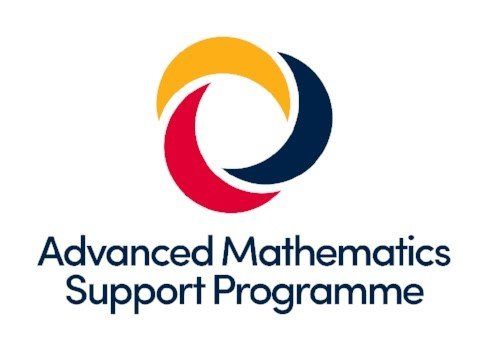Ready to Progress - thoughts from the Maths Hub
Guidance for teaching Mathematics at Key Stages 1 and 2 to help pupils progress through the National Curriculum
As many teachers did, on 6th July, our Primary team sat exploring the new guidancepublished by DfE. Literally the week before, in our various Maths Hubs forums, the tools had been unveiled to us as ‘coming soon’ and all we could think about is ‘What can we do to help teachers to find their way through this’?
Publishing in the last weeks of term was not ideal, but most definitely better than a summer holiday publication, lost online! Or a September publication, when we have just planned out what we think is the best re-introduction to maths for many children who have had a lengthy period of homeschooling.
The guidance is not
just a lengthy word document, or 7 of them if you look at them
individually. Accompanying the text
documents are a suite of videos to support all teachers to use the materials. These are available here.
We know teachers had so many questions, and observations from the flurry of online talk on publication date. Whilst we did not want a knee-jerk reaction (this is not just a COVID-19 publication, this is ‘for life’), we wanted to be able to provide some support to all teachers. In 24 hours, after 1 email, 2 tweets and a Facebook post our online sessions with Dr Debbie Morgan had filled to capacity; local and not-so-local teachers who wanted to hear more about the materials, and who could also then potentially connect with their Maths Hubs. Maths Hubs most definitely will be using these materials as they support teachers in the coming year. We anticipated many more questions than actually arose in the sessions, likely because many teachers just wanted to know what the guidance was and with the wonders of virtual meetings, Debbie was able to share this with us all.
So, what did we take from these meetings, which would be helpful to share with you all?
The guidance is a culmination of research which started in 2014, and started to become a working document about a year ago. It is non-statutory guidance, designed to support teachers to identify two things:
- the key skills and aspects of NC2014 that underpin the rest of the curriculum to bring coherence within and across year groups (Ready to Progress criteria)
- identify and provide resources for key aspects of maths that are often misunderstood.
This guidance is not a replacement for the National Curriculum, nor should your current long term planning be shelved in respect of this! But, as teachers we all recognise the struggle of fitting everything in, particularly where children have gaps in learning, so this guidance helps to prioritise key areas of the curriculum to aid children to progress to the next stage of learning. A key observation from the specialists who have taken part in the Shanghai exchange, and the wider discussions as part of the TRGs and showcase events is the trust in teachers who know children have ‘learnt something’ in a previous year, a contrast to my favourite cartoon, I taught my dog to whistle ...

The guidance is for school leaders, maths leads and class teachers and key to successful implementation is a coherent approach - familiarity with the guidance and the structure, and a carefully planned adaptation to current curriculum provision.
In Debie’s presentation, our attention was drawn to the progression and coherence in the representations throughout all year groups; the development and use of precise and accurate mathematical language; making connections between topics as well as in the progression of a concept; the focus on making connections by exposing mathematical relationships. The latter would certainly help us to understand and appreciate the areas of the curriculum which are included - Number and Place Value (NPV), Number Facts, (NF), Addition and Subtraction (AS), Multiplication and Division (MD) and Fractions (F). Geometry (G) is also explicit: But much of the curriculum is implicit, for example our measuring skills are such because we have a good understanding of relative position of numbers (NPV). The guidance also includes an appendix with an overview of number facts and fluency.
Several teachers have observed, and asked the question ‘Why is there no fractions in KS1?’. The working premise of this document is that the priority areas should have more time spent on them and whilst fractions remain part of the KS1 curriculum, it is not considered to be fundamental to the children’s progress into Year 3.
So, now we have a greater understanding of the structure of the materials and design of them, how do you use them alongside your current plans? Choose a strand and track this in your curriculum plans; where is it the same and where is it different? Is there anything missing? Have you given sufficient time for children to have ‘depth of learning’ in this concept? As a school you can focus on the representations used to model the learning and the language used to explain the maths.
Number and place value, for most of us, is the first unit in our autumn term plans. And a secure understanding of the previous year groups number curriculum is going to be crucial for us to progress onto the four operations. The ready-to-progress criteria describe learning at the end of that particular year group, so we need to look back to the previous year group criteria in September (returning to learning in school or not) and use a range of activities to explore understanding with the children. The ‘future applications’ will help us to make connections to the current year group’s (or future as this column is not always the next year group) learning. If you are fortunate enough to be able to talk to the class teacher from last year, their knowledge of the security of the learning will be key.
One of our teachers tried to map this out in the diagram below -

At some point in our curriculum planning we will need to review the teaching time we have. More schools are moving to a learning journey of a unit, rather than a block of 20 lessons, fitting with the teaching for mastery approach which I can understand. HEALTH WARNING: if we demonstrate no awareness of the complete year, we could end up next year being even less ‘ready-to-progress’ than we were before.
It’s important that
as teachers we see these ready-to-progress criteria as a part of our
plan-teach-assess cycle and that they do not become a tick list.
For all teachers, they are going to be a useful tool to support our subject expertise - ever found yourself wondering why they just do not get it? Chances are, there’s a tiny building block which is not fully understood and that is the foundation the child needed.
Colleagues teaching in small schools (or those in larger with mixed-age) will always ask, how does this work. The strength of this guidance is the greater progression (backwards) to help to see mathematical concepts in year groups which could blend together.
Someone will always ask you the question, ‘Will OFSTED check against this?’ Their framework has never intended to inspect ‘the what’, but they have always reminded us that we need to know why we are teaching what we are. Leaders should be able to demonstrate an awareness of this guidance and it’s key ideas, particularly when discussing learning and the recognition that some children have some gaps. We are constantly being reminded of the Hattie research into the adapted curriculum provision, and the importance of teacher’s teaching what the children needed to learn. Hopefully this guidance will help us to make those decisions.
We know that further guidance will be coming as the maths teams continue to work with teachers and leaders using these tools. At the session with Debbie, she alluded to some supporting materials for subject leaders to use in any INSET in September. Our eyes will be peeled and as soon as we know, we will be sure to share with you.
We hope you are ready-to-progress, albeit to a sun lounger and a relaxing book!




